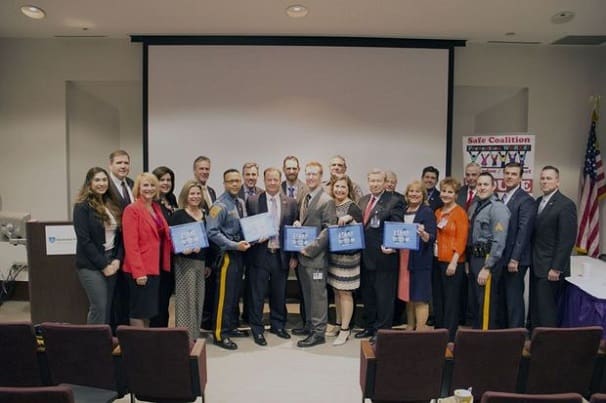
New Jersey’s Hunterdon and Somerset Counties are fortunate to have the SAFE Communities Coalition (Safe Coalition) as an integral part of their substance abuse prevention toolbox. Created in 2003 to address the problem of parents providing alcohol to minors, its vision and budget have grown expediently to meet the needs of the communities it serves. Indeed, the Coalition has proven over-and-over that the power of collaboration – whether reducing marijuana, tobacco, or Rx drug abuse – is mission critical. And the Coalition is achieving results in a number of areas:
- Decreased 30 day underage drinking rates by 26%
- Decreased 30 day marijuana use by 10%
- Increased perception of harm of underage drinking by 10%
- Increased perception of harm of marijuana by 8%, especially in grades 9th and 10th
- A yearly budget of $2,500 in 2009 has grown by 248%
- Coalition membership that consisted of 15 members, predominantly representing schools and prevention organizations in 2009, has expanded to 85 members in 2015 – increasing its base by 150 percent in seven years
- Recipient of CADCA’s 2013 Got Outcomes Milestone Award and a 2011 Dose of Prevention Awardee
Recently, CADCA caught up with Lesley Gabel, the Safe Coalition’s Project Director, to discuss the organization’s most outstanding current activities. Gabel shared that while the Coalition continues to focus on alcohol, marijuana, and other drugs, the most pressing challenges that the organization is addressing are heroin and Rx abuse.
As background, heroin abuse treatment admissions in Hunterdon County increased by 13%. The local drug trend is consistent with state numbers, which had a 216% increase in adulterant drugs (fentanyl, acetyl fentanyl, etc. by itself or mixed with heroin) from 2014-2015. The county has seen a 166% increase in heroin seizures in 2015 from 2014. Therefore, the Safe Coalition is placing a spotlight on this issue and connecting the dots between pills and heroin. Its strategies are straightforward:
- Start early, and engage everyone – parents, children, teens, law enforcement, prosecutors, teachers, healthcare professionals – about keeping medications safe.
- Create and promote adaptable tools and strategies that all partners can use.
- Collect outcome data from the get-go.
The Coalition’s messages are simple:
- There is an undeniable connection between Rx medication abuse and heroin abuse.
- Know the signs and symptoms of Rx abuse and addiction.
- Take medications cautiously – properly store and dispose of unused/expired medications in a permanent prescription drop-off box.
“One of the centerpieces of the Safe Coalition’s Rx abuse prevention efforts is Pills to Heroin, a 15-minute documentary that depicts the devastating effects and journey from prescription drug abuse to heroin,” said Gabel.
The video tells real-life stories of residents living in Hunterdon and Somerset, New Jersey, and is an important testament to the power of community coming together – from people in recovery and their loved ones, to prevention and law enforcement professionals. It also focuses on cleaning our home medicine cabinets.
“This documentary has been approved by the New Jersey state department of education to be used as a prevention and education tool in our schools. We’re engaging all aspects of our community to help drive home the importance of protecting medicine safety. While we’re compiling long-term outcomes, the short-term results have been outstanding,” shared Gabel.
The Safe Communities Coalition is:
- Collaborating with the Hunterdon local hospital pharmacy and largest chain store pharmacies to distribute proper medicine storage and disposal instructions with every prescription. Hospice nurses and emergency room personnel are also on-board, distributing and educating patients and their families about these important issues.
- Promoting greater use of medication drop-boxes, with particular emphasis on educating senior citizens about the importance of protecting their medications.
- Joining forces with the local pediatrician practice that sees thousands of children every year. Information is being provided to parents about the warning signs of Rx abuse and addiction. Also provided are medicine storage and disposal instructions.
“One of our biggest challenges has been to collect long-term outcome data, but we’re certainly on our way,” concluded Peggy Dowd, the Coalition Project Coordinator. She advises other coalitions that are addressing Rx and other forms of drug abuse to:
- Consider how to measure the outcomes of their strategies from the get-go.
- Constantly communicate your successes to your partners – keep the rhythm going.
- Continuously recognize your collaborative partners.

